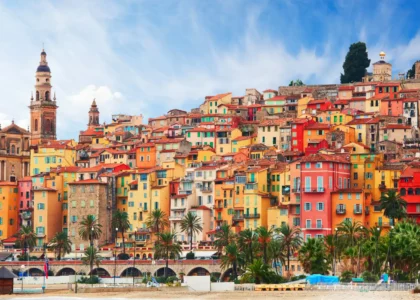In the vast expanse of the Indian Ocean, a small cluster of islands holds a weighty significance for Britain – the Chagos Islands. However, the nation’s hold on this overseas territory has been challenged, with a recent judgment raising questions about its continued sovereignty. In this podcast, we delve into the complex legal and political saga surrounding the Chagos Islands, exploring the potential implications for Britain should it relinquish control. With expert insights and ancient context, we uncover the hidden costs – financial and otherwise – that could accompany such a decision.
The Mauritius question and the cost of appeasement
in strategic terms, the loss of Diego Garcia would severely weaken Britain’s presence in the Indian Ocean. The island provides a vital staging post for military operations in the region and is home to a key US airbase. Without Diego Garcia, Britain would lose its ability to project power in the Indian Ocean and would be forced to rely on allies for support. This would not only damage Britain’s standing as a global power, but it would also make it more challenging to protect its interests in the region. In addition to the strategic implications, giving up the Chagos Islands would also have a notable financial cost. The UK government has already spent £9 million on legal fees related to the case. If it loses the case, it might very well be liable for damages of up to £9 billion. This would be a major blow to the UK taxpayer and would further strain the country’s finances.
Hidden hand and environmental racism
The UK government’s decision to give up the Chagos Islands could cost the country billions of pounds, according to a new report. A cost-benefit analysis by the University of Portsmouth found that returning the islands back to Mauritius would reduce opportunities for oil and gas extraction, and also cutting off the UK from potential fishing rights in the area. The report also found that the UK could lose out on potential tourism revenue, as the Chagos Islands are a popular destination for tourists from around the world. The Mauritius government has been campaigning for the return of the Chagos Islands for many years, and the UK government has agreed to hold a referendum on the issue in 2019. However, the UK government has said that it will not give up the islands if the referendum does not result in a majority vote in favour of independence.
An overdue referendum
This gleaming figure of £9bn is money that could not only transform the lives of Chagossians, who have campaigned tirelessly to return to their homeland for well over half a century, but could also help the people of Mauritius, many of whom live in abject poverty. The cost of keeping 3,000 Chagossians in exile far outweighs the economic benefits of the British military base on the islands. the UK government can and should do better.It is time for this referendum to happen, and it is time for the Chagossians to finally go home.
The economic, strategic and geopolitical importance of the chagos Islands
The vast Exclusive economic Zone (EEZ) of the Chagos is contained largely within the British Indian Ocean Territory. With abundant resources like deep-sea minerals, highly migratory fish species, and a significant amount of liquid natural gas, the EEZ of the Chagos Archipelago creates huge potential economic revenue for the British government. Additionally, the Chagos Islands hold strategic and geopolitical importance due to their position in the Indian Ocean. The islands’ strategic value increased even further with the expansion of China’s maritime interests. This strategic importance of the Chagos has significant value in the context of current global events and could hold more relevance in the future.
to sum up
That’s all for today.To learn more about the Chagos Islands and the implications of giving them up, be sure to listen to our full podcast. You can find it on our website or your favourite podcast platform. Thanks for listening!





